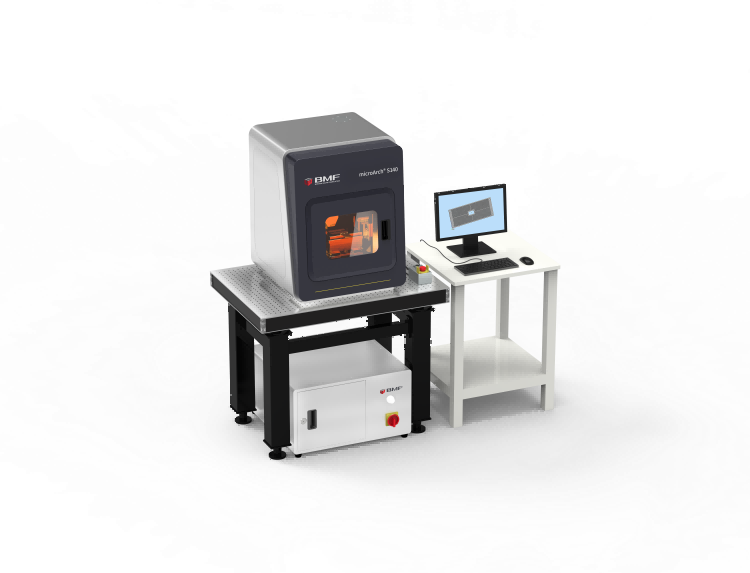As global freshwater scarcity intensifies, solar-driven seawater desalination is emerging as a sustainable and environmentally friendly solution. Yet, traditional solar evaporators often struggle in high-salinity environments due to salt crystallization and clogging, resulting in decreased evaporation efficiency and limited durability.
Recently, a research team from Harbin Institute of Technology (HIT) has developed a bamboo shoot-inspired conical porous evaporator (BSCPE) that achieves exceptionally high evaporation performance and long-term salt resistance under outdoor conditions. The device leverages a biomimetic structural design, multi-walled carbon nanotube (MWCNT)-reinforced resin composite, and BMF’s Projection Micro-Stereolithography (PμSL) technology to achieve both structural precision and functional efficiency.
| Bamboo-Inspired Design for Efficient Water Transport
Drawing inspiration from the natural architecture of bamboo shoots, the team mimicked their vertically aligned microchannels and microporous surfaces. In nature, these structures enable rapid capillary water transport and mechanical robustness. Translating this principle, the BSCPE integrates internal microgaps and surface step-like textures, which together facilitate fast liquid replenishment while increasing the effective evaporation area.
| High-Performance Photothermal Composite
The evaporator’s material system centers on multi-walled carbon nanotubes uniformly dispersed within a UV-curable acrylic resin. This composite achieves over 94% light absorption, efficiently converting solar energy into localized heat. The optimized photothermal layer ensures continuous water evaporation even under highly saline conditions.
| Precision Fabrication with PμSL Technology
Using BMF’s nanoArch® S140 system (printing resolution: 10 μm), the HIT team successfully fabricated the intricate conical geometry and microchannel network of the evaporator. Post-printing treatments, including ethanol cleaning and oxygen plasma activation, significantly enhanced surface hydrophilicity, enabling strong capillary action.

This combination of biomimetic design and ultra-precise manufacturing ensures mechanical durability, structural fidelity, and scalability—key to real-world solar desalination systems.
| Record-High Efficiency and Salt Resistance
Under solar irradiation, the bamboo shoot-inspired evaporator achieved a remarkable evaporation rate of 2.54 kg·m⁻²·h⁻¹ and a solar-to-vapor conversion efficiency of 94.1%, maintaining stable operation for over 200 hours in 20 wt% saline water. This represents a major breakthrough in overcoming salt crystallization—a persistent challenge for long-term solar desalination.
| Toward Scalable and Sustainable Desalination
The study demonstrates how biomimicry, advanced photothermal materials, and micro-nano 3D printing can converge to solve one of the most pressing challenges in clean water production. With further optimization and cost reduction, this technology holds promise for deployment in coastal regions, remote communities, and industrial wastewater treatment.
The research underscores how precision additive manufacturing, such as BMF’s PμSL platform, can accelerate material innovation and enable highly functional designs inspired by nature.
Reference:
Harbin Institute of Technology. Bamboo shoot inspired ultra-high conical porous evaporator for desalination of seawater with high salinity
Chemical Engineering Journal, 2025. DOI: 10.1016/j.cej.2025.164253

